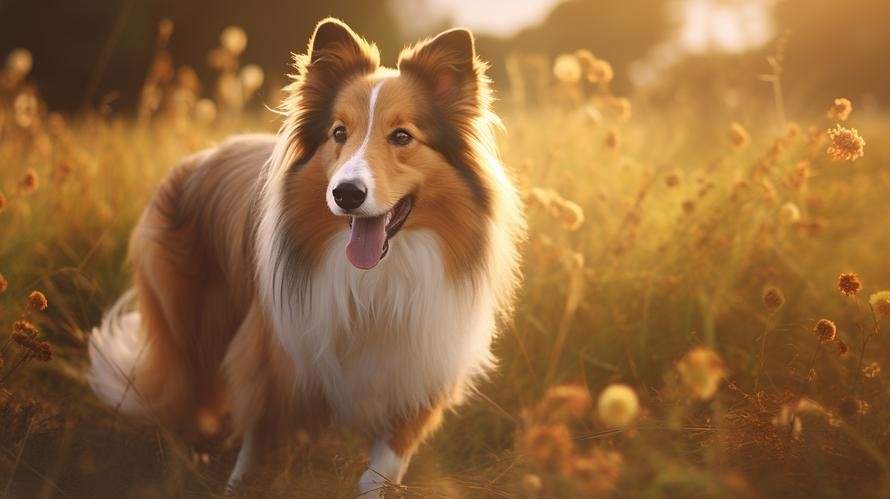Delving into the world of dog parenthood, particularly for the first time, can be a thrilling yet daunting endeavor. Dogs, regardless of breed or size, require commitment, consistency, and care. So if you’re considering a Shetland Sheepdog, commonly known as the Sheltie, for your first canine companion, you’re in for a treat! The Sheltie originates from the Shetland Islands in Scotland, where they were bred for herding sheep – hence their name. This might not sound too intriguing until you realize that these little herding dogs are renowned for their intelligence. In fact, Shelties rank sixth on Dr. Stanley Coren’s top ’10 most intelligent dogs’ list. They have mental abilities similar to human toddlers and can understand 165 words or more!
But, while their intelligence makes them easy to train, it does set the bar high for mental stimulation. This breed thrives on interactive toys, challenging games, and regular exercise. Their clever minds need to be kept occupied or they may resort to destructive behavior. Ever heard of the principle ‘A busy dog is a happy dog’? Well, with Shelties, it’s more like ‘An entertained dog is a well-behaved dog’!
Shelties have remarkable social skills. These dogs are known for their loyalty and devotion to their human families, making them exceptional companions. Their affectionate and playful nature also makes them great with kids and other pets. However, while they’re generally good-natured, their herding instinct might sometimes lead to a behavior called ‘herding nipping’. This is when they nip at people’s heels in an effort to ‘herd’ them. It’s not aggressive behavior, rather instinctual, and with the right training, can be curbed.
Now, one characteristic of Shelties that might surprise you is their ‘talking’. Yes, you read that correctly. Shelties are known for their unique vocalizations – a characteristic trait that separates them from many other dog breeds. They often engage in a behavior best described as ‘talking’ or conversational barking, where they seem to converse with their human families. It’s unique, endearing, but can also be quite noisy. Therefore, for those living in noise-sensitive areas, this factor is worth contemplating.
Although small in size, Shelties are not as fragile as they appear. They possess a dense double coat that not only gives them a majestic appearance but also serves as excellent protection against harsh weather conditions. Shelties are pretty robust and generally enjoy good health, but like all breeds, they are susceptible to certain health conditions such as hip dysplasia and thyroid disorders. Regular veterinary check-ups and a balanced diet are vital to keep them in optimal health.
Their thick, dual coat might make you wonder about grooming requirements. Well, Shelties are fairly low maintenance in this respect, requiring only weekly brushings to keep their coat tangle-free and healthy. But they do ‘blow’ their undercoat twice a year, which can be quite a furry spectacle!
So, is a Shetland Sheepdog a good first dog? The answer depends on your lifestyle and patience level. If you’re an active individual or family that has ample time for physical and mental exercise, and you don’t mind the occasional ‘dog talk’, then a Sheltie might be an excellent choice for your first canine companion. They do need firm, consistent training from an early age, but their intelligence and eagerness to please make them highly trainable. Moreover, socialization is critical in a Sheltie’s early development to ensure they grow into well-rounded adult dogs.
In conclusion, the Shetland sheepdog, with its intelligence, loyalty, and endearing quirks, can indeed be a wonderful first-time dog. However, remember that every dog is unique and the successful integration of a dog into your life requires commitment, understanding, and mutual respect. Whatever breed you choose, make sure it aligns with your lifestyle and preferences. With the right care, training, and love, both you and your dog can share a fulfilling life together.



